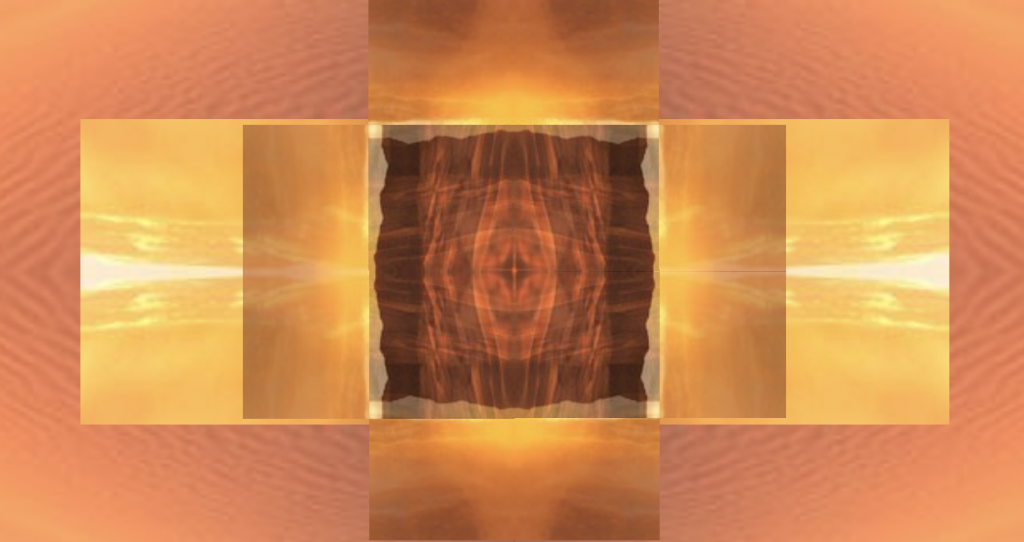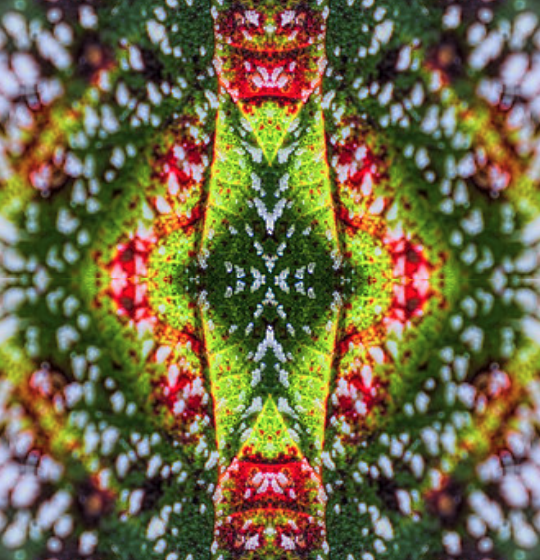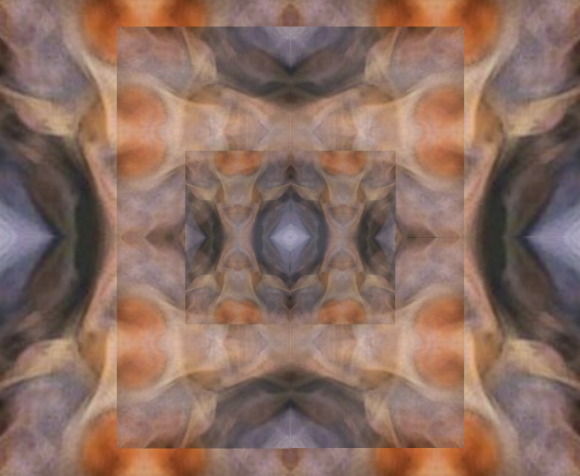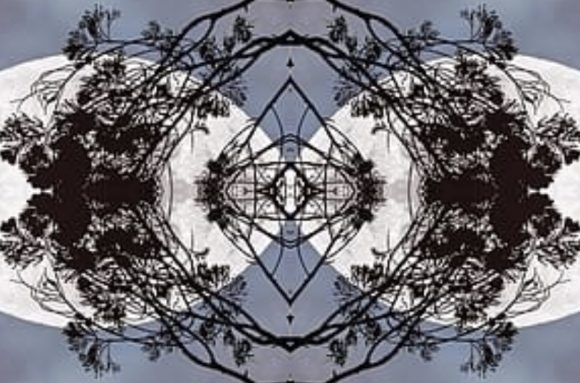Is there a difference between spirit and soul?
In his survey of what the term spirit (Geist) means, Jung notes in passing that it is “common opinion […] that spirit and soul are essentially the same and therefore only arbitrarily separable” (GW IX/I, §386). And it is true that, in Jung’s work, the use of notions such as “psyche”, “spirit”, and “soul” seems at times arbitrary or at least vague.
But I don’t think that’s the last word. We can work our way to some clarity here.

1. When Jung reflects explicitly about his terms, he usually reserves “psyche” for the broader and more inclusive uses.
By psyche I mean the totality of all psychological processes, both conscious and unconscious. By soul I mean rather a definite, delimited complex of function, which would best be characterized as a “personality”.
Unter Psyche verstehe ich die Gesamtheit aller psychischen Vorgänge, der bewußten sowohl wie der unbewußten. Unter Seele dagegen verstehe ich einen bestimmten, abgegrenzten Funktionskomplex, den man am besten als eine “Persönlichkeit” charakterisieren könnte.
GW VI, §799.
Psyche, then, roughly covers everything “psychological”, in the broadest sense. (I usually translate “psychisch” as “psychological” rather than “psychic”, in order to avoid confusion with the “para-psychological” usage of the latter.) It’s just a collective term. Soul is more personified: it is not meant for convenient reference to a mixed bag of phenomena going on in one’s inner experience, as “psyche” is; rather to speak of “soul” has a feel as if we’re talking about someone, a person or at least a sort of personification.
When Jung talks about traditional conceptions (e.g. the Christian or the Gnostic notions of soul, or even more ancient ones), he frequently operates with these terms (“psyche” and “soul”). In contrast, when he explains his own views, he typically switches to notions he has introduced himself, most relevantly of course that of the “anima”.
Ich habe den Terminus Anima vorgeschlagen, denn es soll damit etwas Spezifisches bezeichnet werden, wofür der Ausdruck “Seele” zu allgemein und vage ist.
I have proposed the term Anima, which denotes something specific for which the expression “soul” is too general and vague.
GW IX/II, §25.
Of course, even the notion of “anima” is complex and multilayered, and its definitional structure is by no means obvious. (It has been masterfully dissected and expounded by Hillman in his Anima: an anatomy of a personified notion.) For our purposes, however, it is a good approximation to say that “anima” is Jung’s considered and developed version of what was traditionally called “soul”.
2. In Jung’s view, what goes on in our inner experience is a continuous dynamic of psychological forces, many of which operate in an autonomous or semi-autonomous manner. He frequently calls them “complexes”, and insists that our conscious ego is just one of them.
Remembering (from above) that “psyche” is a collective term that covers all psychological processes, it would therefore obviously include all those autonomous complexes, too. A good deal of what goes on in the psyche, then, is the play of autonomous complexes. We observe them playing in the form of images: concrete visual ones, such as those in dreams or fantasies; metaphorical ones, such as in compulsive behaviors or projections; abstract ones, such as symbols and ideas.
Now Jung — contrary to much of modern empiricist philosophy of mind — believed that what goes on in the psyche is self-generated: the psyche creates and manipulates all those images out of itself, they don’t come from “the outside”. In particular, those images don’t come in via the senses:
But the basis of the unconscious is the autonomy of the psyche, which mirrors, in the play of its images, not the world but itself; although it makes use of the facilities of representation given to it by the sensible world, in order to impress its images. The sense datum […] is selected and used autonomously.
Das Prinzip des Unbewußten aber ist die Autonomie der Psyche selbst, welche im Spiele ihrer Bilder nicht die Welt, sondern sich selber spiegelt, wenngleich sie die Vorstellungsmöglichkeiten, die ihre die Sinneswelt gibt, zur Verdeutlichung ihrer Bilder gebraucht. Das Sinnesdatum […] wird autonom ausgewählt und entlehnt […]
GW XII, §186.
3. With this line of though in mind, a mysterious passage in the spirit essay becomes clearer. Jung speaks of spirit (Geist), and assigns it three important characteristics:
[…] first a spontaneous principle of movement and activity, secondly the property of free image creation independent of sense perception, and thirdly autonomous and sovereign manipulation of the images.
[…] erstens ein spontanes Bewegungs- und Tätigkeitsprinzip, zweitens die Eigenschaft der freien Bilderzeugung jenseits der Sinneswahrnehmung, und drittens die autonome und souveräne Manipulation der Bilder.
GW IX/I, §393.
Prima facie this passage is puzzling: for nowhere else in the spirit essay does Jung speak about images. But once we understand that the autonomy of spirit refers to autonomous complexes which generate inner life of the psyche, it makes sense that this has to occur in the form of imagery.
We should read the passage, then, as saying that the autonomy of spirit consists in its ability to spontaneously create and transform images, and that means to say, to spontaneously create and transform psychological phenomena (ranging from dreams and phantasies via compulsions and projections to symbols and ideas).
And what’s more: the soul works in images, too. Jung points to the
image-like essence of the soul […] The soul is a sequence of images, but not a random succession or juxtaposition, but a highly meaning- and purposeful construction, an illustration of living activity expressed in images.
abbildhaften Wesen der Seele […] Die Seele ist eine Bilderfolge im weitesten Sinne, aber nicht ein zufälliges Neben- oder Nacheinander, sondern ein über alle Maßen sinnreicher und zweckmäßiger Aufbau, eine in Bildern ausgedrückte Anschaulichkeit der Lebenstätigkeit.
GW VIII, §618 (Jung’s emphasis).
So what we have attributed to spirit (autonomy, expressed in image generation and transformation) applies to soul as well. This, of course, should not be surprising, if indeed spirit and soul are “essentially the same”, as I have quoted Jung as saying in the beginning. What is essential, in both spirit and soul, is that they are made up of autonomous complexes, and in this regard, they don’t differ from each other.
4. Another essential characteristic, I take it, is that both spirit and soul appear personified. I have already quoted Jung saying this about soul — soul, by definition, “would best be characterized as a ‘personality’”. But the same applies to spirit (“Der Geist, als Einstellung verstanden, hat […] unverkennbare Neigungen zur Personifikation […]”; GW IX/I, §387). In fact, the whole point of the spirit essay is to survey the various forms in which spirit can appear, narrowly (as the title says) in old tales, but also in dreams, myths, etc. The most typical forms include the Wise Old Man, actual spirits (such as a dead ancestor), and dwarves, animals, or various other symbolic figures (GW IX/I, §396; cf. §§398, 419, 421).
5. There is another commonality: both spirit and soul are eternal forms of being.
Religions and myths express this by identifying them as the divine components in humans: that which connects us to something larger than ourselves (and larger than our world, the “here and now”) — and that which survives and lives on when our own life, in the form we experience it, ends.
Jungians express the same idea by finding common patterns across the products of the imagination (dreams, myths, projections, fairy tales, artistic creation, …), and speculating that there must be a relatively stable source, in itself unknowable, that produces them: the archetypes of the collective unconscious (for spirit, e.g. GW IX/I, §396).
6. Let’s briefly summarize the grounds we have covered so far. Both soul and spirit are somewhat traditional notions, and as they are usually interpreted by Jung, they roughly correspond to autonomous complexes, elements of the psyche — which are special in that they appear personified, exist independent of human individuals or even human generations (possibly even eternally), and appear to us by virtue of their ability to generate and transform imagery (such as in dreams or symbols). As we have seen in the quote from which we started, insofar we consider them under these categories, they are “essentially the same”.
But is it true that there are no significant differences at all between them, that they are “only arbitrarily separable”? Well, not quite. I see at least one significant difference that Jung actually does point out in his body of work.
(Remember, at this point, that we’re not asking for differences between spirit vs. anima, or soul vs. intellect/logos/animus etc., as Jung defines those latter terms. At this point, we’re still dealing with the traditional notions of spirit and soul. Were we to talk about Jung’s own ideas, we would have to fully switch to “anima” and the connected system of ideas in terms of archetypes.)
The difference appears only from the point of view of an individual person. If the individual engages with products of the unconscious (say, their dreams), they might encounter personifications with that special atmosphere of importance and affect, the “numinous” quality, which indicates that those personifications might be associated with either spirit or soul. But now, there is an important difference coming up:
The spirits are […] unconscious autonomous complexes appearing as projections […] While spirits are felt as alien and not belonging to the ego, this is not the case with the soul(s). […] Soul complexes appear as belonging to the ego, and their loss as pathological, in contrast to the spirit complexes, whose relationship with the ego causes illness and their separation healing.
Die Geister sind […] unbewußte autonome Komplexe, welche projiziert erscheinen […] Während die Geister als fremd und als dem Ich nicht zugehörig empfunden werden, ist dies bei der oder den Seelen nicht der Fall. […] Die Seelenkomplexe […] erscheinen dem Ich als zugehörig und ihr Verlust als krankhaft, im Gegensatz zu den Geisterkomplexen, deren Beziehung zum Ich Krankheit bewirkt und deren Abspaltung Genesung bewirkt.
GW VIII, §§585-587 (Jung’s emphasis).
Jung makes this observation in an essay on the psychological origin of the belief in ghosts (and assigns it to primordial beliefs regarding soul and spirit). Interestingly, in this context, he endorses the distinction, and coordinates it with his own contrast between a personal and a collective unconscious:
The contents of the personal unconscious are felt as belonging to one’s own soul, whereas the contents of the collective unconscious appear as alien and as if coming from the outside.
Die Inhalte des persönlichen Unbewußten empfindet man als zur eigenen Seele gehörig, die Inhalte des kollektiven Unbewußten hingegen erscheinen fremd und wie von außen kommend.
GW VIII, §591.
(Viewed from the perspective of Jung philology, one would have to note that this comes from a historically much earlier period, the beginning of the 1920s, than the spirit essay and the later work with which I’m mostly concerned on this blog. I think Jung’s view on how to understand this distinction did shift significantly, subsequently. Still, we can see a tendency to see at least some distinction between soul and spirit even at this point.)




[…] way to approach the distinction between spirit and soul is to look at the different ways in which we engage with the psyche (which I assume to be the […]